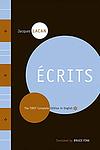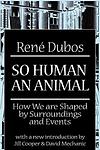The Greatest French "Social sciences" Books of All Time
Click to learn how this list is calculated.
This list represents a comprehensive and trusted collection of the greatest books. Developed through a specialized algorithm, it brings together 300 'best of' book lists to form a definitive guide to the world's most acclaimed books. For those interested in how these books are chosen, additional details can be found on the rankings page.
Genres
Social sciences is a broad category of books that encompasses the study of human society and social relationships. This includes disciplines such as sociology, psychology, anthropology, economics, political science, and history. Social science books aim to understand and explain human behavior, social structures, and cultural norms. They explore topics such as social inequality, power dynamics, social change, and the impact of technology on society. Social science books provide valuable insights into the complexities of human interactions and offer a deeper understanding of the world we live in.
Countries
Date Range
Reading Statistics
Click the button below to see how many of these books you've read!
Download
If you're interested in downloading this list as a CSV file for use in a spreadsheet application, you can easily do so by clicking the button below. Please note that to ensure a manageable file size and faster download, the CSV will include details for only the first 500 books.
Download-
1. The Second Sex by Simone de Beauvoir
This influential work explores the treatment and perception of women throughout history, arguing that women have been repressed and defined only in relation to men. The author presents a detailed analysis of women's roles in society, family, work, and in the creation of their own identities. She discusses the concept of 'the other' and how this has been used to suppress women, while also examining the biological, psychological, and societal impacts of this oppression. The book is a seminal text in feminist theory, challenging traditional notions of femininity and calling for equality and freedom for women.
-
2. Democracy in America by Alexis de Tocqueville
This influential book offers an in-depth analysis of the strengths and weaknesses of 19th century American democracy. The author, a French political thinker, provides a detailed examination of the democratic process and its impact on society, politics, and the economy. The work highlights the importance of civil society, local institutions, and the spirit of equality in ensuring the stability of democracy. It also delves into the dangers of majority tyranny, the potential for democratic despotism, and the critical role of religion and morality in sustaining a democratic nation.
-
3. Mythologies by Roland Barthes
This book is a collection of essays that explore the layers of cultural and societal meanings that are imbued in everyday objects, activities, and phenomena. The author decodes the symbols and signs embedded in things as varied as wrestling, soap detergents, toys, and even the face of Greta Garbo. The book is a pioneering exploration of semiotics, the study of signs and symbols, and it challenges readers to question and understand the cultural connotations and ideologies that are presented as natural or given in our everyday lives.
-
4. Tristes Tropiques by Claude Lévi-Strauss
"Tristes Tropiques" is a blend of autobiography, travel literature, and anthropology by a renowned scholar. The book is a recounting of the author's travels and anthropological work, primarily in Brazil, in the 1930s. It provides a critical and philosophical reflection on his experiences and observations, offering insights into indigenous tribes like the Nambikwara and Tupi-Kawahib, and exploring themes of cultural change, the nature of anthropology, and the author's own disillusionment with Western civilization.
-
5. Discipline and Punish by Michel Foucault
This book delves into the historical evolution of the penal system, examining how Western societies have transitioned from a regime of violent, public physical punishment to a more subtle form of surveillance and control. It introduces the concept of the "panopticon," a metaphor for modern disciplinary societies that exercise power through observation and normalization rather than through overt physical coercion. The work explores the relationship between power, knowledge, and social control, arguing that disciplinary mechanisms are embedded in various institutions, such as schools, hospitals, and prisons, shaping individuals and maintaining order in society.
-
6. Suicide by Emile Durkheim
This classic sociological analysis explores the phenomenon of suicide and its social causes. Written by one of the world's most influential sociologists, this book argues that suicide is more than just an individual decision, but is influenced by social and societal factors. By examining suicide rates among different social categories, the author demonstrates that societal factors such as marital status, religion, and economic stability significantly affect suicide rates. The book is a pioneering work in sociological research, introducing innovative theories and methods that have since become standard in the field.
-
7. The Order of Things by Michel Foucault
"The Order of Things" is a philosophical exploration of the historical changes in the human sciences, including economics, natural history, and philology. The author delves into the concept of 'epistemes' or the unconscious rules that govern the way people perceive the world, and how these have changed over the centuries. The book challenges the idea that knowledge has progressively improved over time, instead suggesting that each era has its own unique framework for understanding and interpreting the world.
-
8. The Raw and the Cooked by Claude Lévi-Strauss
"The Raw and the Cooked" is an anthropological analysis of the myths and customs of tribal societies, particularly those in South America. The author explores the concept of binary opposition, such as raw versus cooked or nature versus culture, as a fundamental structure in these societies' mythologies. The book provides a detailed and systematic study of the symbolic use of food and cooking in primitive societies, suggesting that the way a society categorizes food is a window into understanding its culture.
-
9. Écrits: The First Complete Edition in English by Jacques Lacan
This book is a comprehensive collection of essays by a renowned psychoanalyst, offering readers an in-depth understanding of his theories on human psychology. The author delves into complex topics such as the unconscious, the mirror stage, and the concept of the Other, while also exploring the intersection of psychoanalysis with philosophy, linguistics, and anthropology. The book challenges conventional understanding of subjectivity and identity, making it a seminal work in the field of psychoanalysis.
-
10. Structural Anthropology by Claude Lévi-Strauss
This book serves as an introduction to structural anthropology, a field that focuses on human societies and cultures as systems of meaning. The author explores various topics such as kinship, mythology, and art, using a structuralist approach to understand the underlying patterns and structures that govern human behavior and thought. By analyzing different cultures, the author demonstrates how seemingly disparate elements can be understood in relation to each other within a larger system, providing profound insights into the nature of human society and culture.
-
11. Kabloona by Gontran de Poncins
"Kabloona" is a riveting first-person account of a French nobleman's year-long journey living among the Inuit people in the Arctic during the late 1930s. The book provides an in-depth exploration of the Inuit culture, their harsh living conditions, and their unique perspective on life. The author's experiences and observations challenge and broaden Western notions of 'civilized' society, making it an enlightening read.
-
12. So Human an Animal by René Dubos
"So Human an Animal" is a Pulitzer Prize-winning work that explores the complex relationship between the environment and human health. The book argues that the rapid technological advancements and urbanization of the 20th century have negatively impacted human health and happiness. The author suggests that a return to a more natural way of living and a reconnection with nature could help to alleviate these issues. The book is a call to action, urging society to consider the impact of its actions on the environment and human well-being.
-
13. The Black Count: Glory, Revolution, Betrayal, and the Real Count of Monte Cristo by Tom Reiss
This book tells the true story of General Alex Dumas, a man of mixed race who rose to power in France during the French Revolution. Despite his achievements and contributions, Dumas faced severe racial discrimination and was eventually imprisoned. His life and experiences served as inspiration for his son, who became a famous novelist. The book explores themes of race, class, and the struggle for equality, providing a fascinating look at a lesser-known figure in French history.
Reading Statistics
Click the button below to see how many of these books you've read!
Download
If you're interested in downloading this list as a CSV file for use in a spreadsheet application, you can easily do so by clicking the button below. Please note that to ensure a manageable file size and faster download, the CSV will include details for only the first 500 books.
Download











